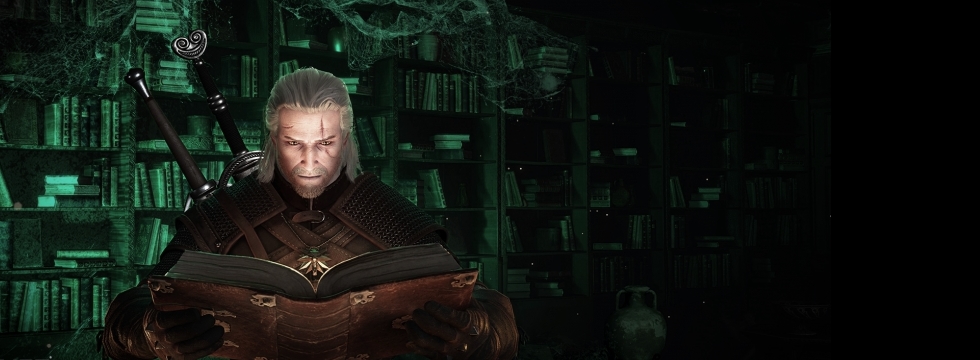author: Hank
Books that Should Become Video Games
Bearing in mind the astonishing success of The Witcher series, we look for other books with some serious potential for video game adaptations.
If you’ve been following my output on gamepressure.com, you probably know I’m a huge fan of fantasy and science fiction. And this includes all possible media – video, tabletop games, and role-playing games, books, movies, TV series, comic books, and what not. Nowadays, the most popular franchises span all of these – let’s take Batman, for example. It started as a comic book, which then was adapted as a TV show, a series of movies, books… over and again. Do not forget to add some toys into the mix as well. But Batman is one of the most popular characters ever created – here, we’d like to talk about characters, and entire settings, that were conceived within books and could serve as the perfect source material for a video game.
From idea, through paper, onto screens…

Did you know that BioShock was inspired by the oeuvre of a Russian-American writer, Ayn Rand?
The inspiration for this article should be plain enough for everyone. Rough beginnings aside, when it was eventually announced that, at the time small, Polish game dev studio will be developing a game based on the prose of Andrzej Sapkowski, there was as much enthusiasm as concern about the entire endeavor. Everyone who’s ever read The Witcher could be pretty confident about the series’ potential for being turned into a video game. But on the other hand, Polish game dev of the mid-2000’s lacked pretty much everything needed for creating an international hit – except talent and determination.
It was almost bamboozling to see the first, admittedly a bit crude and clunky, but also flamboyant attempt at bringing the rather obscure saga to computer screens slowly become a success, reaping positive reviews across the board. You probably know the rest of the story. The Witcher 3 is now considered one of the best RPGs in history, not in small part thanks to its grumpy protagonist, peculiar cast of characters, and compelling setting, all originally conceived by the Polish writer.
And this makes us think: what other works of literature fit the framework for creating a great video game? There’s a handful of video game franchises derived from other works, with the primary examples indicating that comic books are the best choice when it comes to adaptations (the Arkham series, and recently Marvel’s SpiderMan), and movies – not so much.
Various works of literature have been serving as the groundwork for video games for years, sometimes resulting in fantastic games such as BioShock or the Metro series. Otherwise, however, we grew to associate adaptations with rather mediocre quality; games trying to capitalize on a popular franchise without really bothering with novelty.
There’s a ton of books out there that could be included in this list, so, bearing in mind the success of The Witcher series, allow me to skim over some other fantasy/science fiction books written by authors from all over the world. Unfortunately, some of the titles I am about to mention are not available in English, nonetheless, the aforementioned example of The Witcher proves this is not a real issue when the game does such a great job introducing players to the universe. No spoilers ahead, so don’t worry.
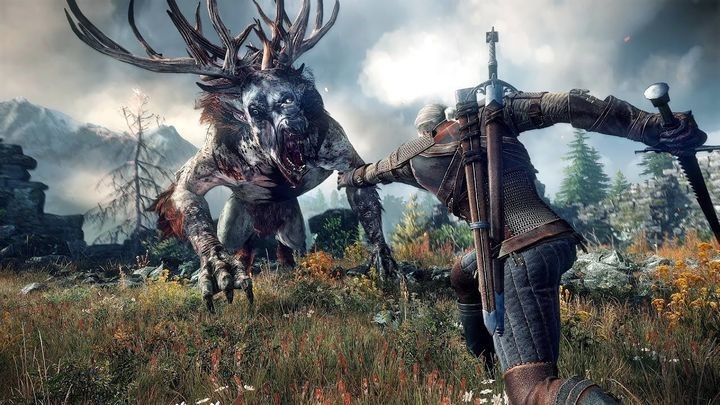
The first series of books I would like to propose, are the Three-Body tomes by Cixin Liu, the best-selling Chinese sci-fi writer in decades, with approximately 500,000 copies sold of each book in the series in China alone. The trilogy opens with The Three-Body Problem, and introduces the readers to an apocalyptic space opera, where scientists attempt to solve the so-called “three-body problem,” which, in physics, addresses the interaction between two celestial bodies interrupted by the third body, which, among others, results in unpredictable changes in atmosphere and gravity. This problem is a scientific background for the inevitable demise of the race of Trisolarans – an alien civilization looking for a new home, who intercept signals from Earth and decide to invade the Blue Planet. After learning about the extra-terrestrial visitors, Chinese people split into two factions – those who want to coexist with the Trisolarians, and those who want to repel their invasion.
Without spoiling anything, let’s just consider this setting for a minute. I do realize that alien invasions are a theme that’s been hugely exploited in video games and other media – nonetheless, a scientific problem that would affect the gameplay and mechanics of the game, sounds like a fresh idea that could give us something we’ve never experienced before. And I don’t mean largely scripted portions of the game that happen in linear fashion – we’ve already seen that in multiple games. I am talking about procedurally generated physical effects and phenomena that would make each playthrough different and ever-challenging. Because that’s what we want from a good video game, right?
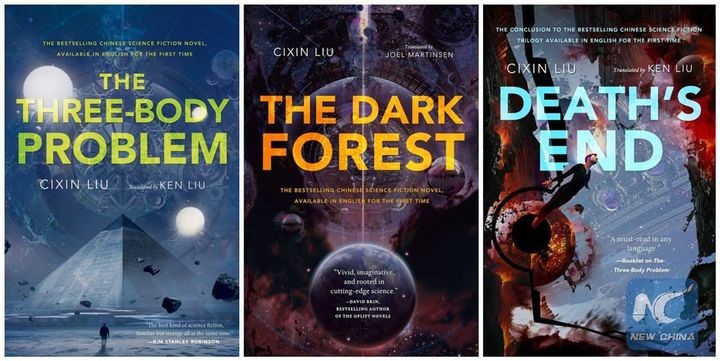
A new quest awaits, m’ lord!
I admit I haven’t played an epic fantasy game in quite some time. However, I did read a book that could be described with exactly the same adjectives, and is definitely worthy of a digital adaptation. Shadow Prowler, written by a Russian author Alexey Pehov, might at first seem a combination of all fantasy tropes and clichés blended together in different proportions only to create another mediocre story with magic, orcs, huge battles, and all that jazz. But it’s not like that. Not at all. The book follows the adventures of Shadow Harold, a master thief, whose task is to retrieve the Rainbow Horn to prevent the Nameless One from taking control over the realm called Avendoom. This generic quest is enriched by refreshing ideas about society (not only the human one), ideals, conflicts, and the fate itself. The author decided to shift the perspective a little when it comes to the “stock” elements of fantasy to allow us to confront and defamiliarize them. Orcs? The evil bunch of smelly creatures, most often green. The protagonist? Has to stop an evil character from taking over the world, and should be a heir to some throne, ideally unaware of the fact. Alexey Pehov turns these, and similar concepts on their heads. Such themes might result in an interesting and novel game, with an action-packed plot and pronounced characters, that so many fantasy – pardon; epic fantasy – games lack.
I wanted to leave my personal favorite for the end of this text, yet I simply can’t help myself anymore. Here it goes! Pan Lodowego Ogrodu (The Lord of the Ice Garden) is a series of four books taking us to a fantasy world inhabited by humans (with some variety in their appearance) and wildlife resembling the animals existing on Earth. This world, Midgaard, is a planet discovered and researched by people from Earth until one day, all members of the scientific expedition vanish without a trace. After years of training, Vuko Drakkainen is dispatched to Midgaard to find his fellow earthlings. His mission is not doomed to fail, though, as he comes well equipped for the mission and also has been biotechnologically augmented to cope with all the dangers lurking across the world whose inhabitants highly resemble the Vikings (both in their looks and customs).
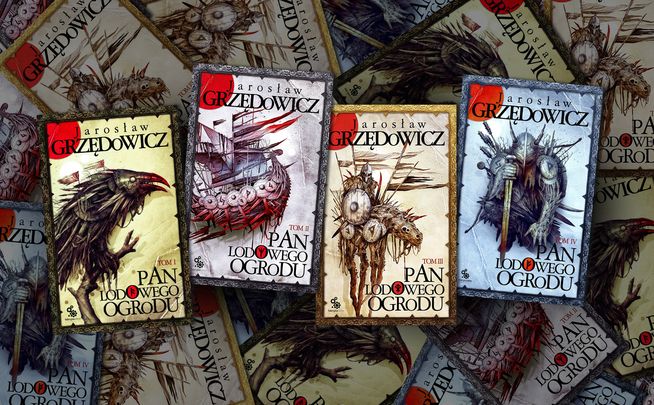
The potential for an action RPG is obvious (as in many other fantasy and science fiction books), nonetheless, I would also like to entertain an idea for an RTS game. The world created by Jaroslaw Grzedowicz is home to dozens of empires, states, lands, tribes, clans, etc. Giving the player the ability to control one of them to ultimately seize power over the entire Midgaard, or defend against a hostile invasion, would definitely prolong the ideas introduced by the books. The way the author describes the architecture and military formations would serve as the perfect material for developers creating assets for any game.
A little bit of this, and a little bit of that…
Les Lames du Cardinal (or The Cardinal’s Blades, as the English translation is titled) takes readers to 1633 Paris ruled by Louis XIII and governed by Cardinal Richelieu – one of the most ruthless and dangerous men across the whole Europe at that time. “But how is this fantasy?” you might ask. Well, the answer is: Dragons! And not just the enormous flying creatures breathing fire and destroying cities. Humanoid dragons, half breeds, and animal-like dragons serving as pets. Mix that up with the Three Musketeers, serious swashbuckling action, secret societies, intrigues, and the Thirty Years’ War to get a supreme book, not to mention a fantastic and uncharted theme for a video game. The diversity of the book might prove perfect for multiple different genres, giving players the ability to become, or tame, dragons to their hearts’ content. There is also a lot of potential for stealth missions, open warfare, and different quests with a political background. Another aspect of the book (criticized by some) is the stress the author put on the description of the 17th-century Paris. Personally, I didn’t have a problem with that when reading the book, and I’m sure the developers would be inspired with the lush details of the French capital provided by the author. And did I mention dragons?!
And now something that doesn’t really belong to this wish list, as quite recently, Polish studio The Dust announced they are working on full-fledged games set in the universe conceived by Jacek Piekara in his books from the Inquisitor series, telling the story of an Inquisitor going by the name of Mordimer Madderdin. In this alternative version of our own world, Jesus Christ actually came down from his cross to wipe out everyone who had not believed in him or had oppressed his followers. Currently, the series comprises 15 books (still counting). The author of the books will actively participate in the process of video game creation, however, the studio gets the final word as to what the games will ultimately look like. From the first announcements, we have learned that players will receive an R-rated game full of difficult choices.
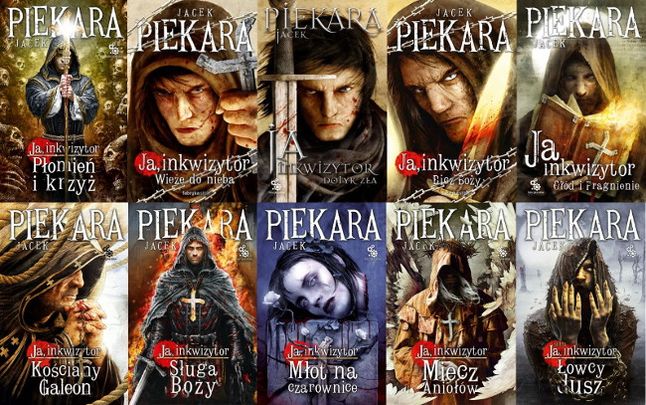
These are just a handful of ideas for literature-based video game adaptations. The series mentioned above do not exhaust all the Polish fantasy and science fiction books that can serve as the foundation for video games, not to mention books written by authors worldwide. What are your ideas for games that I have described? Are there any other books you’d like to see in the form of a video game? Let us know in the comment section below!
